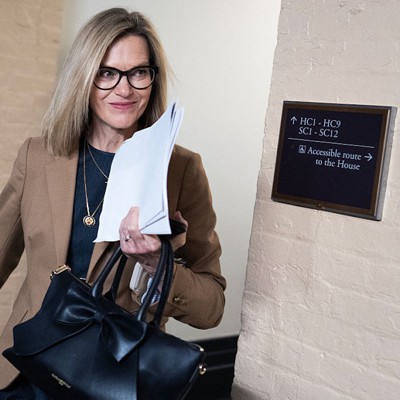Scaling reliable, cost-effective energy sources, securing global supply chains and supporting a strong workforce are all priority areas OpenAI recommended to a House working group on artificial intelligence and energy.
In response to a March request for information from North Dakota Republican Rep. Julie Fedorchak, OpenAI advocated a holistic approach between government and industry to ensure the U.S. is ready to meet the demands that increased AI technology usage requires. Fedorchak launched the House working group in February.
Comments sent by Chan Park — OpenAI’s head of U.S. and Canada Policy and Partnerships — and obtained by Nextgov/FCW revolve around three subject matter pillars for lawmakers to focus on: American energy dominance and AI energy demands, securing the energy grid and strategic competition focused on outpacing China.
“Infrastructure is destiny,” the letter said. “The United States must seize this moment to build the backbone of democratic AI leadership — one that is powered by abundant and reliable energy; enabled by smart, modernized grids; protected by resilient supply chains; and staffed by a nationwide workforce of skilled professionals.”
Improving U.S. energy infrastructure to support the growing demand on data centers for compute power was at the top of the list.
“The U.S. must rapidly expand reliable, cost-effective energy sources,” the comments read. “We recommend a diversified strategy that includes natural gas, nuclear, renewables, and geothermal — each of which holds long-term promise for clean, dispatchable baseload capacity.”
Other areas OpenAI flagged for improvement are the domestic electric grid, transmission infrastructure and next-generation energy systems. In supporting the development of new transmission lines, OpenAI called for improved permitting process efficiency. Energy storage, smart grids and AI-optimized energy management systems were also recommended as supporting technologies to improve grid operations.
The letter mentioned the ongoing threat China poses to the U.S.’s national security posture. It said that export controls and leading in global standards development for AI technologies are two vehicles that can secure the U.S.’s leadership in AI innovation and adoption.
“OpenAI supports a diffusion-focused strategy that categorizes partner countries by commitment to democratic AI principles,” the letter said.
Securing supply chains is also a priority area for OpenAI, with the letter noting that more federal investments are needed when it comes to securing AI hardware supply chains. The company also said that chip packaging, high-bandwidth memory and transformers are “growing choke points.”
“Key packaging technologies are heavily concentrated in Taiwan,” the letter read. “U.S. policy should promote domestic production, diversify sourcing, and treat these components as strategic national assets.”
On the workforce front, OpenAI doubled down on its support for AI Economic Zones and called for more federal investments in opportunities for talent development. This point parlayed into expanding private and public sector partnerships to increase the overall scale of investments, as well as the adoption of AI technologies and supporting infrastructure.
OpenAI’s wishlist runs parallel to multiple perspectives supported by policymakers. The Trump administration rescinded Biden-era export controls and put in place fresh restrictions on the use of Huawei systems, and also limited access to U.S.-produced AI technologies by adversarial nations.
The Department of Energy also announced expanded construction of new data centers and launched more energy production research. Energy is looking for comments from industry experts on power source investment and offered further partnership with the federal government in these endeavours.


